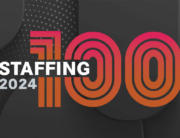Your firm and its services are a commodity, like it or not. The wide availability of numerous staffing and recruitment vendors, the fact that no single entity owns the product, and the fixation on price by both customers and staffing companies that choose to compete on markup all drive the reality our industry remains a commoditized business.
Whether an individual firm remains a commodity or not is a strategic choice. Company size, location and industries served matter little when leaders adopt sound methods to become distinct or even irreplaceable. A growing group of savvy industry veterans and relative newcomers are differentiating their firms through shifts in business practices, packaging of services, meaningful and simple innovations, and expanded methods for buying. Here’s how.
Quid Pro Quo Pricing
Some firms are acknowledging their own value by charging more, not just doing more. Leslie Boudreaux, CPA, a founder and partner of BVOH, shares that this is one of the strategies that has contributed to their success in recent years. “Because our service offering is higher, the price point is as well, and honoring this assures a better match between a prospective client and our company.”
BVOH is a boutique firm placing finance and accounting professionals in full-time and contract positions in the San Francisco Bay Area. Its quid pro quo approach to being rewarded for the value they provide has led to dramatic and consistent growth, along with repeat business over the past five years. By reinvesting some of these gains in the company, especially in improving technology and enhancing best practices, customers and candidates are benefiting from the marriage of an on-demand, responsive service with an advisory approach to customer and candidate interactions. This includes candidate career development and counseling, which creates a better product for customers, and counseling clients on the latest trends in hiring and organizational structure, helping these organizations attract and retain the best talent.
Having value offerings such as these, combined with a willingness to charge for this value, positions firms like BVOH to create custom packaging of services for buyers, expanding the ways in which they buy. Offering escalating value for an escalating price not only gives customers more options, it often makes other firms irrelevant as they have all the choices they need in one place.
Lean Recruiting
Boutique firms are not the only ones focusing on value, with larger companies and franchise organizations also keeping the focus away from price. AtWork Group, an award-winning and nationally known franchisor of staffing services, has developed a sales process that focuses on four distinct factors that show the true value a staffing partner brings to the table — time savings, flexibility, ROI through cost savings and risk mitigation. “These four components build a foundation of values that helps separate our organization from those who are throwing ‘warm bodies’ at job orders,” says President Jason Leverant.
Reducing the required effort of all parties along with improving return on investment are part of a growing, global movement known as lean recruiting. Eliminating wasted time, resources, energy and effort benefits everyone as clients have talented people working more quickly, candidates land better opportunities with less effort, and their providers are rewarded for their efforts while also being able to serve more customers. Patterned on some of the best attributes of lean manufacturing, a systematic method for eliminating waste within a manufacturing process, lean recruiting addresses some of the persistent challenges in our business, especially those focused upon productivity and execution.
“Inherently, our model is promoting a higher quality of service provided to customers and candidates, as evidenced by our high satisfaction scores when polled under Inavero’s Best of Staffing surveys (75% net promoter scores or higher),” Leverant shares. “In addition, this has led to increased gross margin percentages and improvements in employee retention.”
Niching the Niche
Working a niche has been a long-standing strategy that many believe has helped reduce some of the commoditization within our industry. While this approach, to some degree, has created at least a modicum of differentiation, the very fact that “niching” is not new or unique limits the effective- ness of it as a standalone strategy. Creating a distinct offering that buyers view as one-of-a-kind is requiring renewed thought and shifts in focus.
Mike Gawthorne, CEO of UK-based Serocor Group, a human capital management firm, has successfully taken on the task of refining and deepening the niche approach of his company, which focuses on the engineering, information technology and technical arenas. “We have reshaped our organization to have clearly defined divisions of specialization that are led by industry experts. They have been tasked with not just creating their own areas of expertise, but also in developing independent cultures representing the sectors they support.”
Serocor’s group of five distinct brands (ARM, Optamor, Bloc, Hawker Chase Executive and Serocor Solutions) are cornering and covering their markets better than ever as a result of these Micro-Niching initiatives, effectively becoming the UK’s recruitment industry equivalent of an agent to the stars of film or sport. By deepening their level of knowledge and engagement, they are able to create lasting contract and fulltime matches with a speed and accuracy unparalleled by traditional niche providers.
“In a relatively short period of time, we have increased margins and improved our productivity per head,” comments Gawthorne. “The longer-term effects include a much better market presence as we have been able to position our brands more clearly in the market, becoming de facto thought leaders in the process.”
The day our industry gains the ability to manufacture cyborg temps, contractors and direct hire candidates will be the beginning of the end of commoditization as we currently know it. Until then, ongoing creativity and innovation in how we serve up the commodity that is staffing will be required to remain competitive and, in many cases, viable as a business. That is actually good news for an industry that is full of people with an entrepreneurial spirit.







